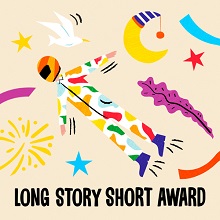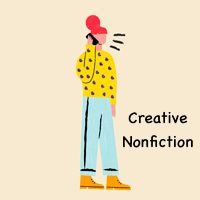The meep of the alarm dragged me from the warmth of my quilt cocoon and smack into Monday morning. I had to bat at it four times before it finally stopped and I found my glasses. 6:00 A.M. and still ... [+]
People have followed us into the Robinson Era. The most successful was Cameron, who picked up a dirty guitar that couldn’t hold a tune and played for what felt like hours while my brown-haired beauty slept in my lap and I ran my fingers through those chocolate locks. Sunlight was streaming in through the open window. They had spent almost an hour beforehand rehearsing lines for their upcoming performances, as Huckleberry Finn and Tom Sawyer, and they hadn’t once broken character, even after they slipped into their respective sleep and musical habits. The only things that existed in that moment were the heat and the sun and that guitar and that hair in my lap. Were they still my boys that I knew and loved? Was I still Eden? We were nameless and personless in that moment, stuck between identities but not caring because there was nothing in that moment besides the wailing of an unheeded guitar and the mess of dirty brown hair in my lap
The house is a dirty, nameless, mismatched cottage, a conveniently short distance from the theater, owned by a man none of us have ever met or seen. There are no pictures of him in the house, but we know he likes earthenware mugs and African artifacts, and that his sleeping rooms are painted soft blue and his eating rooms are painted hard red with chartreuse trim. He owns a dog named Readings but unofficially christened Mark Twain. This dog has seen all. The parade of people through the house, whether serious or superficial, whether drinking or smoking or lovemaking or none of these, have all patted his head and told him what a good boy he is. He naps in a patch of sunlight in the ugly red dining room in the late afternoon. He is content.
I’m not sure how to reference my brown-haired beauty, or if this is overromanticism
We agreed to both late-night tea and early morning breakfast in the Robinson Era once, with respect to my work demands and his school demands. I brought loose-leaf spearmint, chocolate-chip cookies, baguettes, salad. He picked me up from a dark cafe close to midnight with a borrowed car and rummaged in the old refrigerator for butter and jam and milk. He asked me to remove my shoes, and I complied, letting my tired hair out of its ponytail as well. We sat on the leather couch with our earthenware mugs of spearmint and said little. He mentioned how he was trying to figure out what it was he wanted, and how much he wished it was me. Readings greeted us sleepily.
He was outside my house at 5:45 the next morning for breakfast. We went back to the Robinson cottage and slowly came to full consciousness with bowls of Lucky Charms, with Readings once again greeting us sleepily. We found life in each other as we woke up with the sun, me being the last person he saw before he went to sleep and the first person he saw after he woke up. We had used the last of the milk, so we jumped in his borrowed car and drove to the still-sleepy grocery store for milk and grapes and more tea. I asked him if he thought this is what it would be like if we were married. He grinned back and said probably, although if we were ever going to the store at 6:30 again, he would make me drive. I laughed and he gifted me a tea diffuser shaped like a swan, my Christmas present in late February. We once again wondered if we were right for each other, and when we got back to the house, he turned on my favorite music and then got in the shower, and I danced with Readings and made us plates of cookies and grapes and milk and bread and jam. It was the best breakfast I had ever had. He drove me back in enough time for him to get to school on time, and we drove past Adam in his classic jeep and waved. He probably thought we had spent the night together. It felt almost as intimate, even though nothing illicit had taken place between us.
The afternoon where illicit activities did, indeed, take place, is more scattered in my memory. We had been distant but agreed to try to overcome our differences by civil conversation. We began the day firmly rooted in the Espresso Era, but felt we needed to be closer, so we took bagels and smoothies and cold brew and returned to our picnic spot on a low section of theater roof we had visited once before. We poured our hearts out to each other, unkindly and firmly and resentfully and hesitantly. We hadn’t yet completed the conversation, but we hugged a deep hug, a tight one that lasted several long moments with faces buried in necks. He invited me back to the Robinson cottage for macaroni and cheese, and I responded that I never said no to mac and cheese, and he stole a beautiful authentic vintage denim jacket from the men’s dressing room of the theater for me so I wouldn’t be cold on the walk back. It was a short walk.
We pushed aside an accumulation of clutter on the kitchen table to make room for our mac and cheese bowls, and he showed me the changes he had made to the cottage since I had last seen it. He was especially proud of the flower arrangements he had created with the flowers he had received on opening night from his parents and I, stuffed inside empty champagne bottles and set in the sunny windowsill, my purple and white flowers wilting slightly and set between two bunches of cheerful yellow chrysanthemums from his parents. He took my bottle and plucked the dead flowers out, rearranging the blooming flowers and changing the water in the bottle. I picked up a forgotten purple flower from the arrangement and pressed it between newspaper pages and paper towels and tucked it between the pages of Nate Robinson’s copy of Huckleberry Finn, where it hasn’t been touched since, if I’m not wrong.
That was the afternoon I told him about the eras of us, and about the Robinson Era, and how much we hated it but how likely it was that we would end up there forever. We agreed that it was the best era but that we couldn’t spend too much time in it or out of it because the other eras were looming constantly. We agreed that regression into the Green Room Era was a mistake we were likely to make if we spent too long in the Robinson Era.
We dived into that mistake with everything we had in us, and swiftly and matter-of-factly kissed twice when it was over. He handed me a piece of gum, and I donned my beautiful denim jacket, and we walked out of that house with as much certainty as we could muster—a surprisingly good amount.
Certainty was never ours to claim. That was why that afternoon must have belonged completely to someone else. We claimed uncertainty, and pain, and heartaches and headaches. Kissing outside of the Robinson Era, and after we had broken our Green Room Era roots, resulted in tears, betrayal, heartbreak. We simply didn’t work anymore. We were trying so hard. We fought constantly. Afternoons like that one were absolutely not ours to claim.
And yet, there we were.



